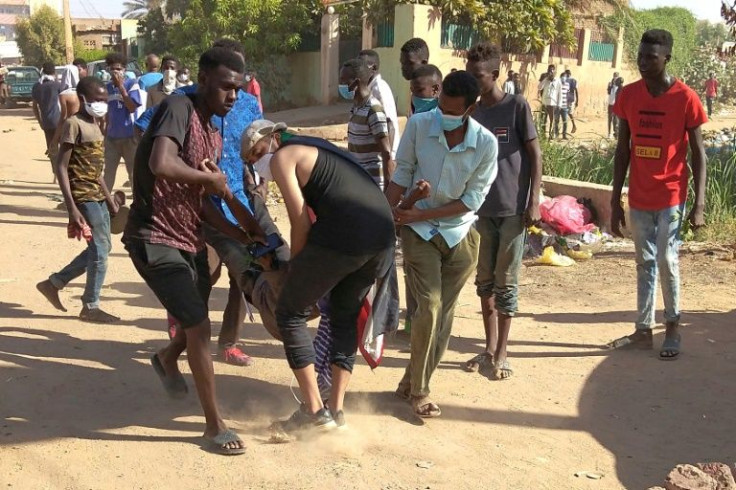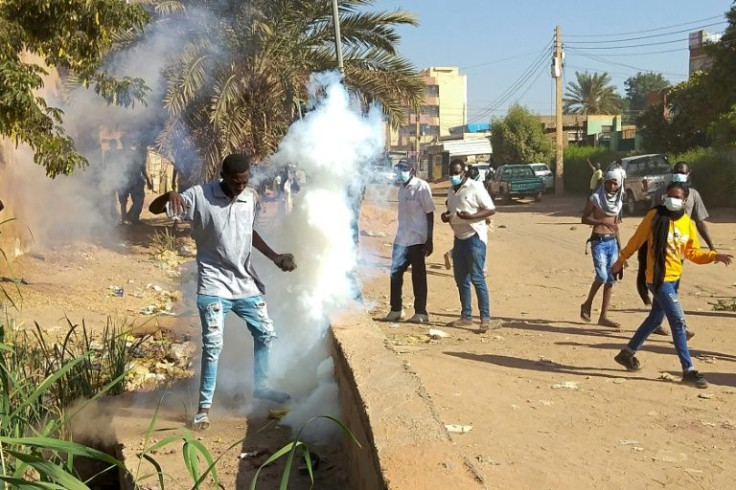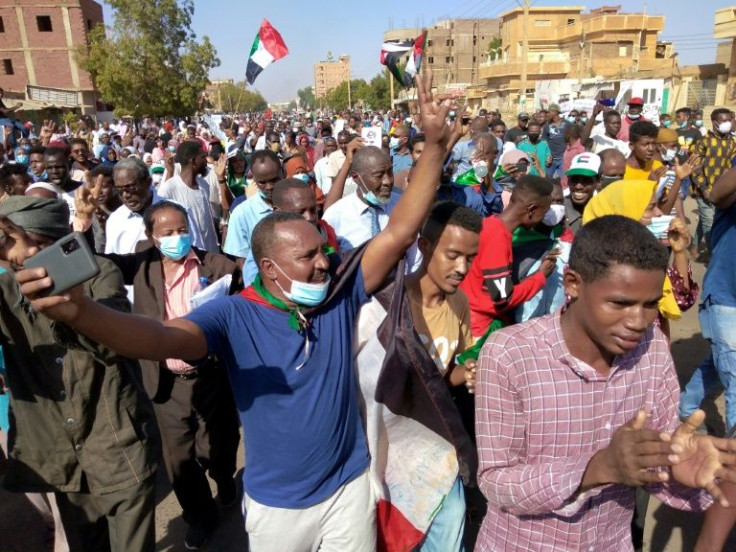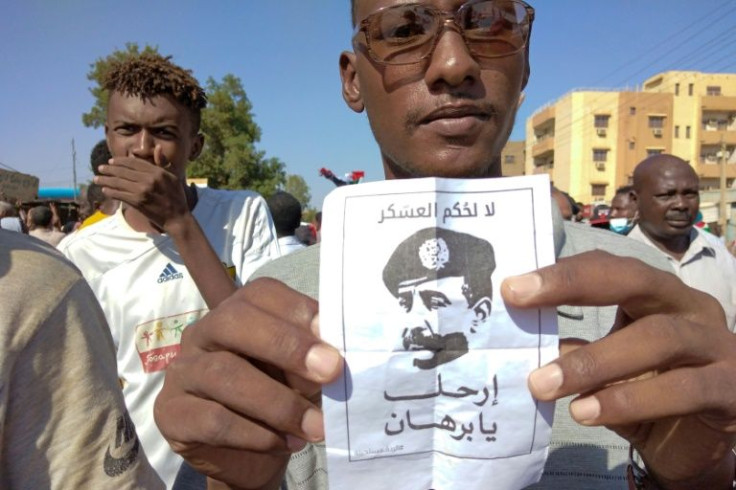New Clashes Rock Sudan As Internet Returns After Deadly Day
Street clashes again shook Khartoum as internet services returned to Sudan on Thursday, a day after 15 protesters were killed in the bloodiest violence since the country's October 25 coup.
US Secretary of State Antony Blinken led a chorus of international condemnation over the crackdown and demanded that Sudan's people be allowed to "assemble peacefully and express their views".
The demonstrations on Wednesday were organised despite a near-total shutdown of internet services and the disruption of telephone lines.

Police on Thursday fired tear gas to disperse anti-coup protesters and tore down makeshift barricades before dozens of demonstrators returned to rebuild them only to face more tear gas.
"Protesters responded by hurling stones at the police," one of the witnesses said.
The official news agency SUNA said later that "internet services are gradually returning through all telecommunication companies."

AFP journalists were able to access the internet, including social media networks through VPNs.

On October 25, top general Abdel Fattah al-Burhan -- Sudan's de facto leader since the April 2019 ouster of longtime autocrat Omar al-Bashir -- detained the civilian leadership and declared a state of emergency.
The move upended Sudan's fragile transition to full civilian rule, drawing international condemnation and a flurry of punitive measures and aid cuts.
Burhan insists the military's move "was not a coup" but a step to "rectify the course of the transition" to civilian rule.
Thousands took to the streets on Wednesday in Khartoum and other cities but were met by the deadliest crackdown since the military's takeover.

At least 15 people were killed, most of them in north Khartoum, doctors said, raising the overall toll since the coup to 39 dead.
But police said they had recorded only one death among protesters in north Khartoum. Another 30 had suffered breathing difficulties from tear gas inhalation.
They said they had fired no live rounds and used only "minimum force", even as 89 officers were wounded, some of them critically.

UN rights chief Michelle Bachelet said "it is utterly shameful that live ammunition was again used yesterday against protesters."
UN Special Rapporteur on Freedom of Association Clement Voule said he had "received alarming reports of increased use of lethal force by the military against peaceful protesters".
The European Union said the "perpetrators of these violations will be held accountable" and that the blackout must "not prevent the world from being informed about these human rights violations".
By Thursday morning, phone lines had been restored before internet services returned.
Bridges connecting Khartoum with its neighbouring cities reopened and traffic returned to the streets of the capital.
Last week, Burhan formed a new Sovereign Council, the highest transitional authority, with himself as chief and military figures and ex-rebel leaders keeping their posts.
He replaced members from the Forces for Freedom and Change (FFC), Sudan's main civilian bloc, with little-known figures.
The FFC is an umbrella alliance that spearheaded the protests which led to the ouster of Bashir in 2019, and its mainstream faction has supported the anti-coup protests of recent weeks.
Since the coup, Burhan has removed clauses referring to the FFC from the 2019 power-sharing deal between the military and the civilians from the bloc.
This week, US Assistant Secretary of State for African Affairs Molly Phee met with the generals and the ousted civilian government in a bid to broker a way out of the crisis.
Phee has called for the reinstatement of ousted Prime Minister Abdalla Hamdok, who is effectively under house arrest.
Burhan has vowed to hold the planned elections in 2023, reiterating to Phee on Tuesday that his actions aimed to "correct the trajectory of the revolution".
"Everybody, it seems to me, wants to find a way back, which is not the feeling I think you would get from the outside," said the senior official on Blinken's plane on a trip to Africa.
"There is a lot of room for finding a way forward."
© Copyright AFP 2024. All rights reserved.





















